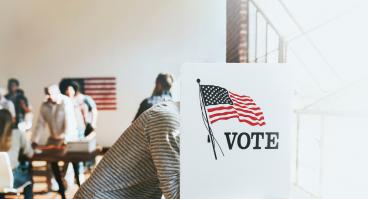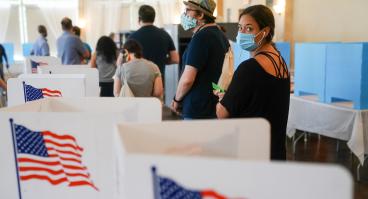The Carter-Baker Commission: 16 Years Later

Table of Contents
To access the full conference report, download the PDF on the left-hand sidebar.
Introduction
In 2005, the United States was in the fifth year of efforts to reform its election system. The
hotly contested and controversial 2000 presidential election had identified flaws in the
nation’s registration and voting laws that were seen as contributing to a lack of confidence
in election outcomes.
In 2002, Congress – with input from state and local election officials and experts from all
sectors of American society – responded by enacting the Help America Vote Act (HAVA) to
address the wide range of issues identified in 2000.
By 2004, however, it was clear that HAVA had not settled all of the arguments about
election reform. State laws requiring voters to provide photo identification were generating backlash amid claims of disenfranchisement. Concerns about new voting technology were leading to fears of counting errors. And growing numbers of absentee and mail ballots were raising concerns about the possibility of fraud.
In response to these concerns, former President Jimmy Carter and former Secretary of
State James A. Baker, III, agreed to co-chair a bipartisan commission, housed at
Washington D.C.’s American University, to examine these and other outstanding election
reform issues. The final report, titled “Building Confidence in U.S. Elections,” stressed the
important role of elections in the nation’s democracy and made a series of
recommendations, including:
- A national system to connect state and local voter registration lists
- Voter identification based on a universally available REAL ID card
- Policies to improve voter access for all communities, as well as innovations like vote centers and voter information lookup sites
- Stronger efforts to combat fraud, especially in absentee voting
- Auditable paper backups for all voting technology
Sixteen years later, after another fiercely fought controversial presidential election in 2020, a host of the issues that Carter-Baker addressed in 2005 – many of which are now-familiar aspects of the American voting experience – were once again back in the news.
In this environment, The Carter Center and Baker Institute set out to convene election
leaders and other experts to discuss the important challenges and opportunities facing the nation’s election system and, like the original Carter-Baker Commission, seek out areas of consensus for building confidence in U.S. elections.

